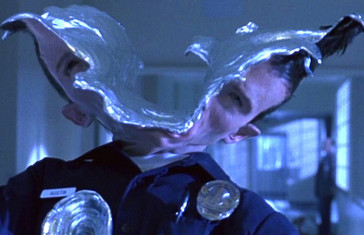
As far as special effects laden blockbusters go, it's impressive that Terminator 2: Judgment Day still looks as great as it does. After almost 25 years, it holds up as a technical achievement, retaining all the seamless thrills it had on its release. Three attempts to replicate that success have mostly failed, falling at Sarah Conner's and the T1000's feet. James Cameron might not be great with dialogue, but he knows how to build an unimpeachable action set piece.
Terminator 2 effortlessly skips between genres over its runtime. There's multiple heist sections that turn into high-octane action. The sci-fi nature of the story merges with the Halloween-esque horror movie, with the T1000 in Mike Myers' mask. Cameron trades the romantic subplot of the prior film with a father-son dynamic, keeping the spectacle grounded with recognizable emotion. That it can be all these things, while also experiencing a complete shift in objective halfway through, and not feel jumbled or muddled is a testament to Cameron's command of the material.
Strong acting isn't always required in big-budget filmmaking, but the cast of Terminator 2 has their moments. Linda Hamilton is fantastic as the iron-willed Sarah Conner, seasoning her intensity with moments of vulnerability in the assault on Miles Dyson's home, or in the transition from her elation at potentially escaping the asylum only to run into the T800, turning her hope into abject terror. As the T800, Arnold Schwarzeneggar is playing his most iconic role, spitting out catchphrase after catchphrase and having fun doing it. As monotone as he is, the viewer can see his CPU taking in new information and adapting accordingly. Robert Patrick as the T1000 is a great foil for the T800. Patrick's more natural tone and inflection reflects not just the casting of an American, English-as-a-first-language actor, but also the technological leap between Terminator models. It's a nice form-function intuitive relationship that works inside and outside the world of the film.
That's not to say all the performances hold up, though the script is just as much a culprit. Sarah's narration is pretty rough and makes the character seem inarticulate and dumb. It could've easily been excised, as Sarah's vivid nuclear nightmare is all that's needed to communicate her fears. The recurring playground imagery shows, where the narration tells. The real victim of the dialogue is Edward Furlong's John Conner, a character completely stuck in the amber of the early 90's. His look and his vocabulary irrevocably date the film, not in a nostalgic way, but a corny one. When not asked to speak in Cameron's version of teen vernacular, Furlong does much better. His reaction shots cut through his bluster, and it feels very real in the handful of instances when he's asked to cry. It's disappointing that Cameron couldn't have found a way to make him sound more natural, because the character's behavior is perfectly appropriate for his circumstances. As is, some of the things Hamilton and Furlong end up saying strike a black mark against the film.
Those dialogue fails are plentiful, but so are the set-pieces that remain thrilling after several viewings. Cameron has a mastery on the logic and space of a scene, exemplified in the T1000 getting his gun stuck in the asylum bars. As CGI driven as that character is, he still exists in a physical world. The set-pieces also are ably doling out catharsis in small doses, giving the Conner's and their robotic protector small victories in a larger war. The iconic shattering of the frozen T1000, preceded by another Arnold catchphrase, is immediately undercut. It's a victorious moment that only manages to buy a couple minutes, earned, but still not enough. Cameron also includes playful little extras throughout, never keeping things from getting too serious. The little blob of liquid T1000 rejoining its master shone through on this viewing, as well as the truck driver's little yelp as he dove out of the T1000's way in the final car chase. Terminator 2 has enough of these kinds of touches that another viewing would bring out something different.
The craziest thing about Terminator 2 is that it may not even be Cameron's greatest action film. Plenty would say Aliens trumps it, and a few morons would prefer Avatar. Wherever it falls in his ultimate legacy, Terminator 2 remains a superior action film, marred though it may be by an often-irritating child performance. It's not a surprise, and frankly not all that bad a reflection on them, that directors like McG or Alan Taylor haven't been able to live up to its reputation. Cameron's a hard act to follow. B
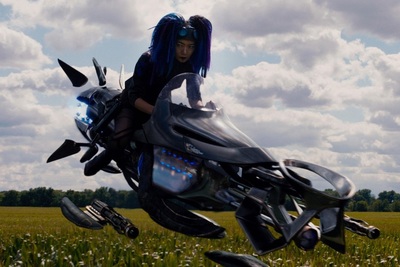
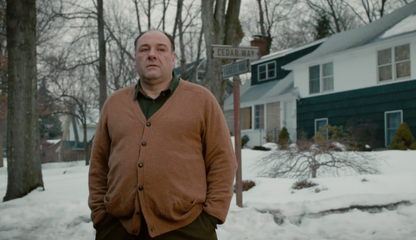
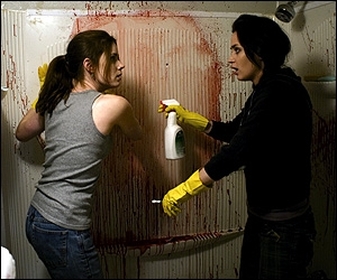
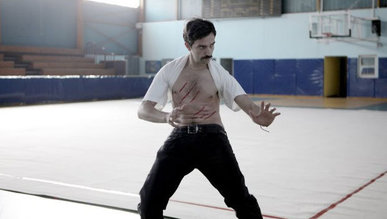
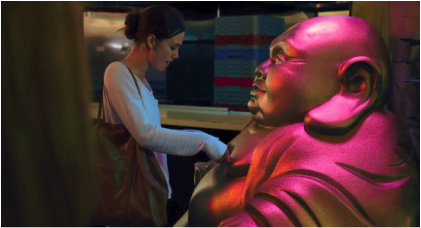
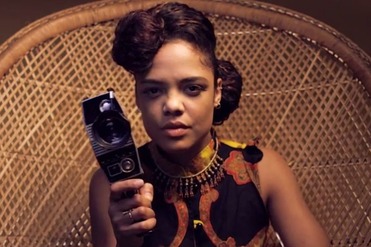

 RSS Feed
RSS Feed